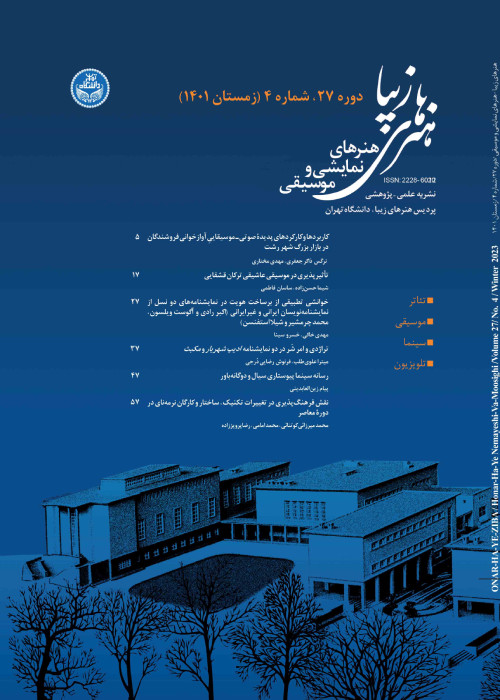The Distinction of Mirzadeh Eshghi Nationalism from the Dominant Nationalist Discourse of His Time
Based on the views of some of the most important researchers and historians who have studied in the historical period of Reza Shahi, such as Homayoun Katozian or Mashaallah Ajoudan, during the first Pahlavi regime in Iran tendency to pre-Islamic era of Iran was promoted by the regime as an important indicator of nationalism in order to culturally pave the way for Reza Shahi's modernization. Attention to ancient Iran could provide a basis for people to realize their ancient glory, and Reza Shahi's modernization promised that a return to that glorious past would be possible. Historical drama from the Reza Shahi romantic era flourishes in the history of Iranian dramatic literature. The main approach of historical playwriting in this period is romantic attention to the glorious periods of the past and especially, ancient Iran.Writing in the same period, Mirzadeh Eshqi, in plays such as Rastakhiz-e Shahriaran-e Iran and Ideal-e Dehgani, emphasized a kind of romantic nationalism that relied on the glory of the past but was very different from that of Reza Khan and the prevailing discourse of the time and as a form of discursive resistance challenged the dominant nationalism supported by Reza Khan. Revolving around the key proposition that Mirzadeh Eshqi’s nationalism is of a romantic type, the present study seeks to understand, first, the characteristics of Eshqi’s nationalism in his plays and, then, the ways in which his romantic nationalism acts as a discursive discourse against Reza Shah’s nationalism. Reza Khan expects the intellectuals of his time to follow his view and therefore urges them to write in the Shafaq-e-Sorkh newspaper to confirm this. Mirzadeh Eshghi is one of these thinkers, but in response, he writes a poetic play called Ideal-e Dehgani (1924), during which he claims a kind of literary-political revolution that contradicts Reza Khan's views. Instead of endorsing that view, he proposes Blood Feast, a type of carnival that can be analyzed with Bakhtin's theory of carnival. By proposing the Blood Feast carnival, Eshghi proposes a kind of revolutionary and utopian resistance to the discourse in Rezakhan's power from the dictatorship of the center-oriented. A second kind of dissimilar and antagonistic culture opposes the official culture of Rezakhan, which stands against the perfection, integrity and eternity of that established order and creates a rupture in it. Eshghi, before this, in the Rastakhiz-e Shahriaran-e Iran (1916) with the discourse of ancient nationalism-revolutionary romantic-utopian nationalism that he presents, creates another resistance in the uniform discourse of Reza Shahi's future nationalism and disrupts it. In the mournful carnival that Mirzadeh Eshghi launches in the form of an imaginary dream with the content of a trip to the ruins of ancient Iran, the predecessors of Iran in its ancient splendor, the lack of this greatness and pride in the present era They mourn and finally, the promise of the return of this greatness is given in the future. The present study is a historical-descriptive study, with analyses conducted in the new historicist theoretical framework and data collected through the documentary research method.
- حق عضویت دریافتی صرف حمایت از نشریات عضو و نگهداری، تکمیل و توسعه مگیران میشود.
- پرداخت حق اشتراک و دانلود مقالات اجازه بازنشر آن در سایر رسانههای چاپی و دیجیتال را به کاربر نمیدهد.



